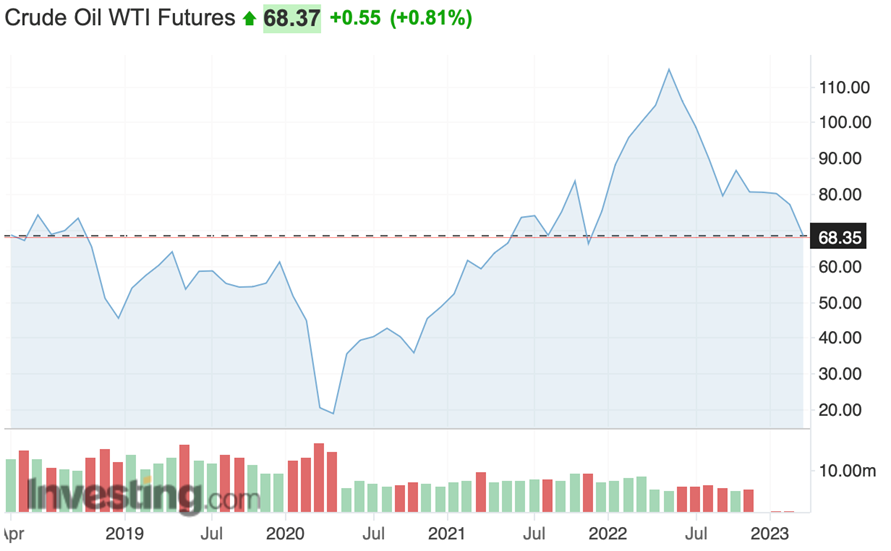The problems that banks are currently facing are having a significant impact on the oil market. There is some correlation in the market between the exposure of not only US banks to the oil industry, which can lead to volatility in both the oil and financial markets. Such a link has most recently affected oil investors.
In the previous trading week, crude oil WTI saw a decline from 76.601 to 66.310 (-13.43%) and then the price relatively stabilized after news of the Swiss Central Bank and UBS providing assistance to Credit Suisse was released.* The price of crude oil has the potential to recover if the crisis does not spread further. Global investor sentiment will also be a key consideration in future pricing. News of oil price declines related to unexpected bank debt has also started to spread via Twitter.

If you are following what is happening in the oil market, don't miss the next meeting of OPEC and their allies which include Russia. The previous meeting in October resulted in an agreement to reduce the daily oil production target by 2 million barrels by the end of 2023. Due to a more significant drop in the price of WTI versus Brent and weakened demand for oil from US refineries, a record average of 2.1 million barrels per day of exports from the US to Europe was recorded. So if you have been waiting for a more significant drop in oil prices, now is the time to consider your investment decision to buy this commodity[1].

Chart 1 Crude Oil, WTI, price trend over five years
* Past performance is no guarantee of future results.
[1] Forward-looking statements are based on assumptions and current expectations, which may be inaccurate, or on the current economic environment, which may change. Such statements are not guarantees of future performance. They involve risks and other uncertainties that are difficult to predict. Results may differ materially from those expressed or implied by any forward-looking statements.


